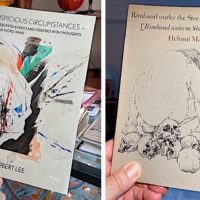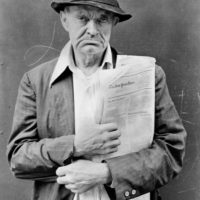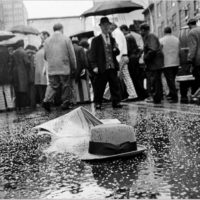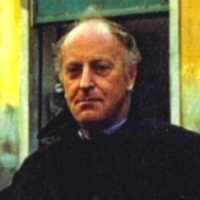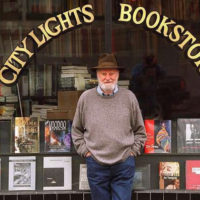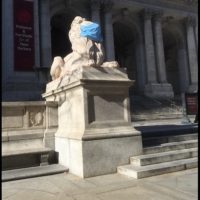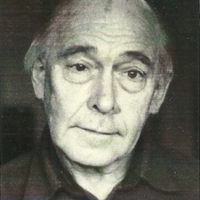“He was perhaps one of the most reliable links that Bengal and India had to the counter-culture movements across America and Europe. His lifelong friend, French poet and collagist Bruno Sourdin called him, ‘The sacred fire of Bengal.’” — Sreemanti Sengupta, The Wire
Pandemic in India
Taking a Break
Back soon.
Underground: To a Remaindered Poet
An ancient shadow led the exiled Dante
through the hell of his neurotic soul.
Yet you, oh poet, are silent about your escape
and slipped into the brown hide of a bookseller
to sell me your remainder of 2000 sonnets.
You did not die like the laurel-wreathed tribune
under a cloak of daggers.
No, not you, rebellious citizen . . .
Day and Night
There are day poets and night poets. Here is one of each: A. Robert Lee (whose SUSPICIOUS CIRCUMSTANCES was recently published) and Helmut Maria Soik (whose RIMBAUD UNDER THE STEEL HELMET has been translated from the German by Georg M. Gugelberger and Lydia Perera). I should perhaps mention, in case anyone gets the wrong idea, that I make no value judgment as to the greater or lesser worth of “day” vs. “night.” I had so much fun reading “Suspicious Circumstances” that it felt as good as getting high, no drugs needed. The wit and wisdom of its vignettes—really prose poems laced with laughter—dissect the customs and dispel the dreariness of ordinary life. They are a much-needed provocation, like Baudelaire’s “Paris Spleen” turned inside out.
Carl Weissner’s German Essays and Reportage
Notes on Outsiders
UPDATED: To get the drift of “Aufzeichnungen über Aussenseiter” by Carl Weissner, I’ve been typing pieces of text into google translate. It’s a helluva time-consuming job, as if re-setting type you understand. Matthias Penzel, who edited the collection and wrote an afterword, tells me I should have better things to do with my time. But it’s more than worth the effort.
A Photo Portrait for the Ages
They don’t make characters like this any more unless you think of Trump’s sourpusses.
Rare Book Collecting
Connecting Brion Gysin and Paul-Armand Gette
UPDATED // To rate collectors by the use they make of their collections rather than simply by completeness, or by the rarity and excellence of individual items, makes great sense. Jed Birmingham’s new series about collectors of Burroughsiana is essential reading for anyone interested in the usefulness of collecting books of any kind, not just those by Williams Burroughs.
New Folio from Cold Turkey Press
The stone lion at the gate
wears a mask like mine.
This is where I used to wait
for books that bind,
that put my mind at ease.
From Bike Messenger to Filmmaker
Rich Allen’s ‘Street Shots / Hooky’
When a book begins like this, notice must be taken: “I woke up, New Year’s Day 1970, in a straitjacket. I had no memory, of anything, at least not at first. I was in an asylum on Long Island after taking an overdose of some pills a shrink gave me. Slowly awareness arose. … I asked to have the jacket removed and they did. Bit by bit memories came back. I could recall details of my childhood. I remembered I’d married Cathy, my girlfriend, months ago when she turned eighteen … In a few days I felt normal.”
Oprah Interview Misses the Bigger Picture
In all the press coverage I have seen of Oprah Winfrey’s interview with Meghan and Harry, it has been treated as a tale of personal tragedy, a terrible racist family squabble, for the British royals — but not one mention of the larger tragedy at the heart of Heathcote Williams’s “Royal Babylon,” namely the immense damage caused by the monarchy’s greedy, rapacious treatment of peoples and nations the worldover.
Will Oprah Pick Up Where He Left Off?
Heathcote Williams on the British Monarchy
“‘God save the queen,’ they sang, ‘it’s a fascist regime.’ / And the song’s hook-line became a new anthem — / Disturbing to clutches of flag-wavers lining the streets. / And horrifying to Middle England and the Daily Mail.” — from ROYAL BABYLON
PS: In all the press coverage I have seen of the interview, it has been treated as a tale of personal tragedy, a terrible racist family squabble, for the British royals but not one mention of the larger tragedy at the heart of “Royal Babylon,” namely the immense damage caused by the monarchy’s greedy, rapacious treatment of peoples and nations the world over.
Joseph Brodsky on the Life of Books
“On the whole, books are less finite than ourselves. Even the worst among them outlast their authors. … Often they sit on the shelves absorbing dust long after the writer himself has turned into a handful of dust. Yet even this form of the future is better than the memory of a few surviving relatives or friends on whom one cannot rely, and often it is precisely the appetite for this posthumous dimension which sets one’s pen in motion.”
Lawrence Ferlinghetti Dies at 101
His Pictures of a Gone World Remain
A literary era passes. It was already past, yet it still has influence. Maybe the biggest. Because ArtsJournal was down yesterday—I know not why—I couldn’t post this. The world didn’t miss it. My account is minimal in the scheme of things but here ‘tiz anyhow, excerpted from ‘My Adventures in Fugitive Litrichur.’
The Library Is Closed
…and thoughts come in verse: ‘The stone lion at the gate / wears a mask like mine. / This is where I used to wait / for books that bind / that kept my mind at ease— / I crack them as I please. / Now I hurry home . . .’
‘Four-mile walk / double masked / fogged-up glasses / gloves and hat— / I’m a walking mummy / in deserted streets.’
Riding the Zoom Wagon
‘Journalism in a Time of Crisis’
The New York Review of Books will present a discussion about the ways contemporary journalism has addressed moments of political and social crisis. The program, Journalism in a Time of Crisis, is scheduled for Feb. 24 at 7:30 p.m., featuring Justine van der Leun, Howard French, Elizabeth Bruenig, Mark Danner, and Darryl Pinckney.
emmett williams: ‘universal truths’
from ‘selected shorter poems 1950-1970’ ‘universal truths / shouldn’t be / all that hard / to find . . .’
Moloko Print
Two New Books of Poems in Bilingual Editions
One by yours truly, “Your Obituary Is Waiting.” It’s a collection of “deformed sonnets,” with German translations by Gregor Pott and “flypaper collages” by Norman Ogue Mustill as counterpoint. The book design by Robert Schalinski, the paper, and the print quality are to die for, no pun. The other is “The Return” by William Cody Maher, also bilingual, with German translations by Walter Hartmann and photos by Signe Mähler, designed by Ralph Gabriel. And again the quality of the production is stunning. Furthermore, in a joint production, Moloko and Sea Urchin Editions have released “The Ex-Terr Poems” by Ed Sanders with his drawings, in an English-only edition, designed by Anneke Auer. I haven’t seen the book itself but I would bet the quality of the artifact matches the others.



